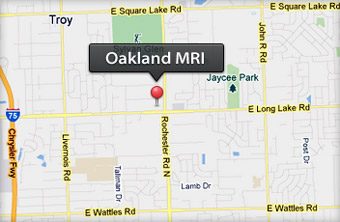Magnetic resonance imaging (MRI) scans may provide an early measure of how women will respond to chemotherapy for breast cancer, according to a new study published in the journal Radiology.
Women with breast cancer who undergo pre-surgery chemotherapy, known as neoadjuvant chemotherapy, are more likely to be able to save their breasts than those who receive chemotherapy after surgery.
Researchers from the University of California in San Francisco, who conducted the study, say contrast-enhanced MRIs can work as an early predictor of the body’s response to neoadjuvant chemotherapy by measuring the blood vessel formation in tumors, a process known as angiogenesis. Angiogenesis is considered an earlier and more accurate marker of tumor response.
The researchers hope MRI scans in the future will work as a more reliable alternative to clinical examinations, which are the current standard for treatment.
In the study, the researchers analyzed data from 216 female patients undergoing neoadjuvant chemotherapy for stage II and stage III breast cancer, comparing the predictive ability of MRI to clinical examinations. The MRI sessions were performed before, during and after treatment.
“Currently, doctors estimate the size of tumors by palpitating (feeling) the tumor, which is the existing standard for measuring the tumor’s response to chemotherapy,” study author Dr. Nola Hylton, professor of radiology and biomedical imaging at the University of California in San Francisco, told FoxNews.com. “We looked at ability of MRI compared to clinical exam in predicting chemotherapy outcomes and found the scans were superior to clinical exam.”
According to Hylton, MRIs can detect tumor changes as early as the first cycle of chemotherapy. If the tumor appears smaller and less bright on the scan, it can be interpreted as a sign that the chemotherapy may be effective and eventually lead to tumor eradication.
“These results show the sensitivity of MRI helps to more accurately measure the change with treatment and more accurately predict the outcome earlier in treatment,” Hylton said. “…There’s no other effective way to do that – neither mammography nor ultrasounds are effective for monitoring the tumor response. Clinical exams are subjective and not always accurate.”
One of the ultimate goals, according to Hylton, is to refine the MRI methods used in the study, so they can be interpreted during a patient’s treatment to measure how the patient is reacting to particular drugs.
“We want to provide a tool clinicians can use to make decisions about changing chemotherapy drug treatments, and to really individualize these treatments for patients,” Hylton said. “We want to see if we can identify women who will not respond well to certain treatments and determine if there are other treatment options for them.”
Hylton and her colleagues are also assessing data to see if MRIs can better predict the likelihood of breast cancer recurrence. They expect to publish those findings later this year.


